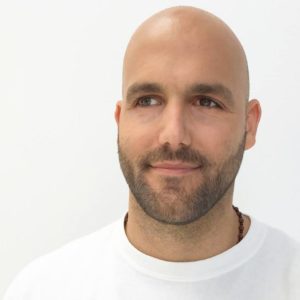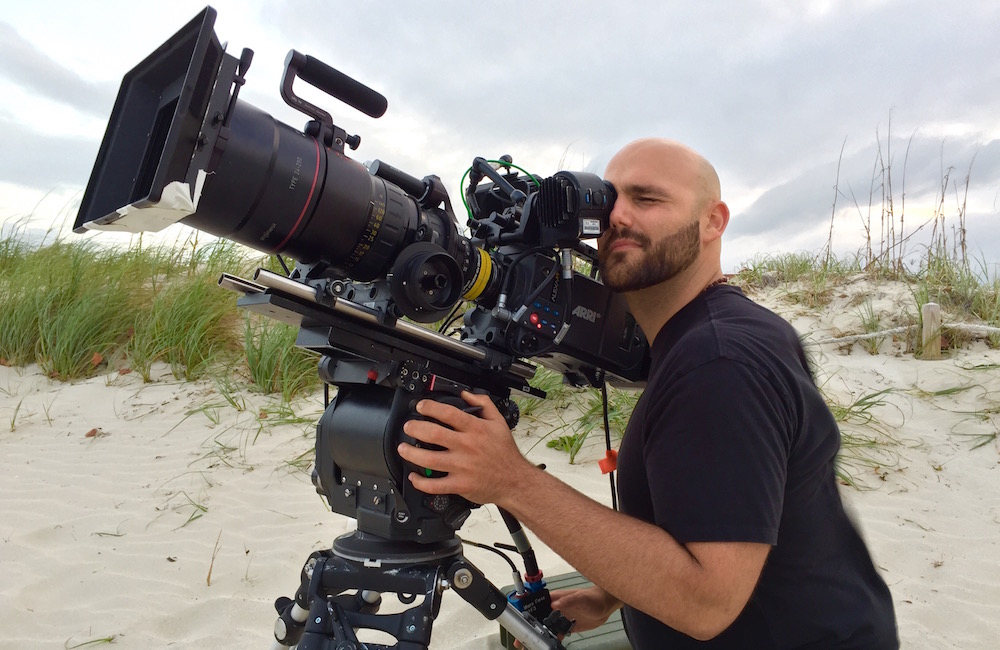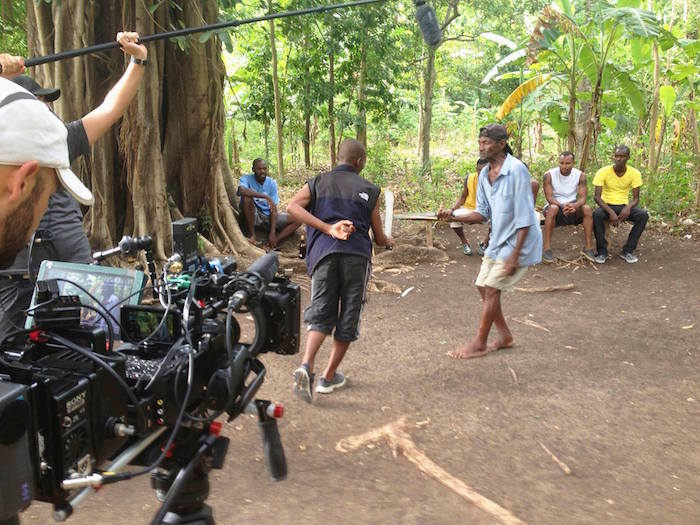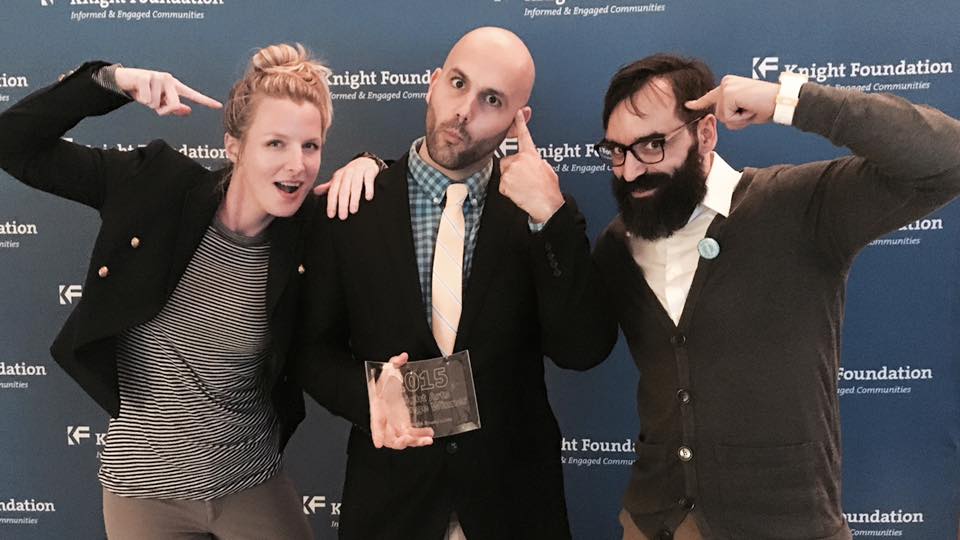Advances in neurotech combines with classical music in filmmaker Jonathan David Kane’s Corpus Callosum
Miami-based filmmaker Jonathan David Kane has had a camera in his hand for as long as he can remember, despite growing up in the 1980s at a time when video recording equipment wasn’t something people nonchalantly carried around with them in their back pockets.
Kane’s father escaped Communism in Bulgaria and fled to Italy where he waited to be allowed to come to the United States. While in Italy, he studied photography and wanted to become a filmmaker once he got to America.
“He did everything but become a filmmaker, being an Eastern European immigrant in the 1970s who didn’t speak any English,” says Kane. “He was a dishwasher, a construction worker, a truck driver, but never a filmmaker; not until later on in life.”
When Kane was a child, his father was finally able to open a small video production company producing local commercials and filming weddings and bar mitzvahs.
“Since I was 10 years old I would work with him,” says Kane. “Cameras have always been in my life, and storytelling was always something I’ve been interested in.”

His mother is a songwriter – another form of storytelling – and in high school Kane thought he would become a musician, until his performing and visual arts high school made him choose between music and film.
“They wouldn’t let me cross-pollinate, but now that I’m an artist I see that it’s all about multidisciplinary cross-pollinating as much as possible for more unique artistic expression,” he says. “Filmmaking is this wonderfully collaborative art form with people [of all disciplines] coming together to tell a story.”
Kane enrolled in film school at Florida State University in Tallahassee but was too broke not to work, and with his background in videography, the best work opportunities for him were in Miami, not Tallahassee. He worked on as many film sets as he could in Miami, getting experience as a producer and eventually being hired as cinematographer for a documentary film called At the Edge of the World.
The film chronicled the Sea Shepherd Antarctic Campaign against a Japanese whaling fleet in the Ross Sea in Antarctica. Released in 2008 before these whaling operations were widely known as an international conflict, the film was a precursor to the Animal Planet’s most successful show to date, Whale Wars, and earned acclaim for its ambitious approach to engaging in and chronicling environmental activism. When Kane was asked to join the project he was told in no uncertain terms that his life would be at risk.
“It changed my whole perspective on things,” he says. “It brought about a different consciousness, a different approach to my artwork. I came back to Miami and didn’t know what I was going to do. Then I came across this scrappy organization just coming into being called the Borscht Corporation.”
Borscht Corp. is a nonprofit organization created by local filmmakers with the goal of empowering and supporting artists to tell fresh Miami stories by developing, overseeing, and commissioning the creation of dozens of short films, often by first-time filmmakers from diverse socioeconomic and ethnic backgrounds, for the annual(-ish) Borscht Film Festival held every 12-18 months (now coming up on its tenth edition this winter).

Borscht got its start when, as Kane tells it, “A bunch of friends from the New World School of Arts from all different artistic mediums who like film formed this group to collaborate on each other’s work. In doing that they realized they liked working with each other and telling Miami stories better than in the cities where they went to school.”
This was in 2004, a time when the democratization of media in the form of smart phones in the hands of every man, woman, and child was just beginning.
“Everybody was fast realizing that you didn’t have to be in L.A. or New York if you wanted a career in the arts and tell authentic, original stories and possibly have more of an impact than you would in these oversaturated communities where your message would be watered down. That was the impetus for Borscht.”
As Borscht grew, eventually receiving significant support from the Knight Foundation to support the Borscht Film Festival and all of its commissioned works, Miami saw a revival of art-house cinema and a newly thriving independent cinematic community.
Kane is now the “Minister of Justice” for the organization: he “keeps the peace,” he says. He also continues working on his own projects that run the full gamut from radical environmentalism, like At the Edge of the World, to Haitian machete fencing.

Papa Machete is the story of Alfred Avril, an aging farming struggling to survive on crops grown in the arid hills of Haiti, who also happens to be one of the few living masters of the art of Tire Machét – Haitian machete fencing.
Kane directed and edited the film, which made its world debut at the 2014 Toronto International Film Festival. He admits that upon first hearing the story of “Papa Machete,” he didn’t quite know what the story was going to be until he got out there and started filming.
“There’s not really a particular kind of story that draws me,” he says of his project choices. “I believe that art and film are meant to be topical and engaging to the times. That’s important to me in projects that I choose – that there’s an element of unique identity but that the stories being told can permeate internationally and be understood and related to universally.”
Kane’s next project is certainly a pivot away from what he has been doing as a filmmaker but a callback to his background in music: Corpus Callosum, supported by a grant from the Knight Foundation, is a partnership with the New World Symphony and the Patricia and Phillip Frost Museum of Science.

Kane had been working as part of a video team at New World Symphony. He invited his parents to a chamber music performance at the New World Center and asked them afterwards what they thought. His mother, a career musician who started playing piano at an early age, understands the language of music, but his father is the opposite – growing up in Bulgaria and then living in exile, he did not grow up surrounded by music; he only understands visual language.
“My mom went into all of her feelings about the work and my dad just said, ‘It’s very beautiful but I just don’t know what I’m supposed to feel.'”
At the same time Kane was also premiering Papa Machete at Sundance and exploring the “New Frontier” section, highlighting alternative ways of storytelling at the convergence of film, art, media, live performance, music and technology.
“I was thinking of the intersections of technology, art, and science, and I had this idea that it may be possible through advancements in neuroscience using new EEG technology and FMRI biofeedback methods that we could collect enough data that could possibly inform an app that would act like a human mind as it listens to music and convert that data into a visual representation of what goes on in our minds as we perceive music,” he explains. With Corpus Callosum the question is, “Can we translate our perception of music as a visual experience?” And if the answer is yes, Kane says, “Then I can show my dad.”
Though he had a general idea of what could potentially be done utilizing such technology, not being a scientist himself put him at a disadvantage to implement the project. Once again, some multidisciplinary collaboration was needed. He contacted his friend at the Frost Museum of Science who had already done some work with perception and biofeedback of the mind, and she brought in an astrophysicist and a graphic designer who are both working on the design of the Museum’s new planetarium. Thus a new collective on perception was formed.

Corpus Callosum received the Knight grant at the end of 2015. They have been in the research and development stage since then. They are creating a whole “experience” and hope to have a prototype ready by the end of February or early March and be part of the planetarium’s opening season.
The experience will go something like this: music played by the Symphony will be visually “translated” at Frost’s planetarium, accompanying an exhibition on how humans perceive music, how music is mathematical, and how it has influenced human civilization over centuries as the education portion of this otherwise elaborate artistic experience. Before visitors walk into the planetarium for the full audio and visual experience they will first be educated on the science and the process of this project so that they have some context in understanding it – how science is in play informing the art and how the science is just as important as the art and vice versa.
“The development of the technology and the experience is what’s most important,” says Kane. “The project is tourable. The idea is to create something that is really special that has been birthed from these Miami-based organizations, that is special enough to move on to other cities and be toured around the world. It’s something that’s important that’s being developed in Miami and being exported. Because we import so much culture here, we thought it would be fantastic to have something that’s very special be able to be presented to audiences around the world and visitors from around the world.”
This new “perception collective” formed between the New World Symphony and the Frost Museum with Kane as the lynchpin is intended to live beyond this one singular project.
“Once we have the parameters of the experience fully defined and can come up with new applications for that technology, the relationship between New World and Frost can exist beyond this one project,” says Kane. “They can communicate in this way for awhile and the relationship can be long-lasting as they come up with different ways of using this technology, opening up the opportunity for different concert formats beyond what this is used for.”

(1) How do you like to collaborate?
I only like to collaborate.
(2) How do you a start a project?
With an idea, and if that idea sticks with me long enough it becomes a project.
(3) How do you talk about your value?
I’m a human being and my experience is priceless. I feel like my experience as a human being is priceless. There’s more to value than money. Value is perception.
(4) How do you define success?
I am constantly redefining what success means to me, and setting small, achievable goals. I feel like success is a feeling, so how do I gauge accomplishment? In small, achievable goals. People put these really large expectations on that word “success” and therefore never feel successful. Success is honestly a feeling; it’s a feeling of pride, it’s a feeling of happiness. I believe that’s measured by your sense of accomplishment. What does success mean to you and what are small, achievable goals to get there?
(5) How do you fund your work?
The majority of funding for my projects comes from grants and foundations. Some projects come from private investment, like more commercially-minded film projects. I can definitely say that a large chunk of the body of my work would not exist and I would not be able to work in Miami at the level I am working without the support of the Knight Foundation. They are wonderful and the work they do is vital to the arts community, and that is real talk. Borscht wouldn’t exist; it would have long ago disbanded if the Knight Foundation didn’t believe in a bunch of scrappy kids who wanted to make movies about their city. Another recent supporter of Borscht is Time Warner 150 [a content incubator from Time Warner]. Their support comes in the form of a grant for us to support first-generation filmmakers and storytellers to help us tell those filmmakers’ stories.

[…] tend to work collaboratively, and most of them enjoy it (for the most part). Documentary filmmaker Jonathan David Kane says he “only” likes to collaborate. Designer Cézanne Charles says, simply, […]